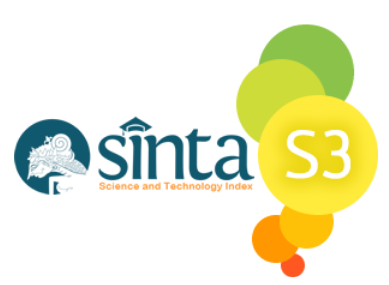REFORMULATING THE DESIGN OF CHARACTER EDUCATION BASED ON SPIRITUAL-RELIGIOUS VALUES
Abstract
Character education is the process of developing fitrah (basic potential) of human beings by instilling moral and spiritual values in students. Combining moral and spiritual values with piety to God and religious teachings is the core of education and is the way to bring human functions to their human origins. Education institutions often neglect character building and focus more on students’ academic achievement and competence. They emphasize intellectual intelligence (cognitive domain) yet ignore moral, emotional, and spiritual intelligence. Thus, it is necessary to reformulate character education to answer the era’s challenges and changes and solve various problems modern humans face. In the sense of improvement, changes must cover all levels and aspects based on the concept, curriculum, quality of human resources, institutions, and organizations so human beings can adapt to the flow of globalization and socio-cultural changes in modern society. These all are constructed to suit the global era and the socio-cultural changes of modern civilization. Reformulation must be based on basic human characteristics and universal moral values from religious teachings (the golden rule) and consider the potential of human nature as a bio-psycho-spiritual-religious creature. The development of character education must also be based on the basic principles of Islam, namely tawhid. The concept of tawhid, or the greatness of God, needs to be applied and elaborated in the character education model.
Keywords
Full Text:
PDFReferences
Dewantara, K. H. (1977). Majlis Luhur Persatuan Taman Siswa. Yogyakarta.
Halik, A. (2020). Ilmu pendidikan islam: perspektif ontologi, epistemologi, aksiologi. Istiqra: Jurnal Pendidikan Dan Pemikiran Islam, 7(2).
Hidayatullah, M. F., & Rohmadi, M. (2010). Pendidikan karakter: membangun peradaban bangsa. Yuma Pustaka.
Imawan, S. (2002). Sukidi, Kecerdasan Spiritual: Mengapa SQ lebih penting daripada IQ dan EQ. Jakarta: Gramedia.
Karim, M. R. (1991). Pendidikan Islam di Indonesia Antara Cita dan Fakta. Yogyakata: Tiara Wacana, Cet I.
Kemendiknas, T. P. K. (2010). Pembinaan Pendidikan Karakter di Sekolah Menengah Pertama. Tidak Diterbitkan.
Lickona, T. (2009). Educating for character: How our schools can teach respect and responsibility. Bantam.
Majid, A. (2012). Andayani. Pendidikan Karakter Perspektif Islam. Bandung: Remaja Rosdakarya.
Mubarok, A. (2000). Jiwa dalam al-Qur’an: solusi krisis keruhanian manusia modern. Penerbit Paramadina.
Naim, N. (2017). Pendidikan multikultural, konsep dan aplikasi (Vol. 1). Ar-Ruzz Media.
Nasional, D. P. (2003). Undang-undang republik Indonesia nomor 20 tahun 2003 tentang sistem pendidikan nasional. Language, 188, 22cm.
Rizal, M., & Munir, M. (2006). Filsafat Ilmu. Yogyakarta, Pustaka Pelajar.
Roqib, M., Machfudin, & Fakih, M. (2003). Pendidikan perempuan. Gama Media.
Saefuddin, A. M. (1987). Desekularisasi Pemikiran: Landasan Islamisasi. Mizan.
Tafsir, A. (2003). Filsafat Umum, Akal Sehat dan Hati Sejak Thales Sampai Capra. Bandung: PT Remaja Rosdakarya.
Tilaar, H. A. R. (1998). Beberapa agenda reformasi pendidikan nasional dalam perspektif abad 21. IndonesiaTera.
Yunus, F. M. (2007). Pendidikan Berbasis Realitas Sosial: YB Mangunwijaya-Paulo Freire. Yogyakarta: Logung Pustaka, 1.
Zubaedi, D. P. K. (2011). Konsepsi dan Aplikasinya dalam Lembaga Pendidikan. Jakarta: Kencana.
Zuriah, N., SI, M., Sunaryo, H., & SI, M. (2018). Model Pendidikan Karakter di Perguruan Tinggi Ancangan dan Best Practices. Surya Pena Gemilang.
DOI: https://doi.org/10.5281/zenodo.8081276
Refbacks
- There are currently no refbacks.
Copyright (c) 2022 Erudio Journal of Educational Innovation

This work is licensed under a Creative Commons Attribution 4.0 International License.












